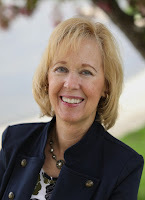Edie Melson's Blog, page 27
January 16, 2025
Seven D Words for Writers

by Crystal Bowman
I’m a little bit OCD so my brain is wired to crave order and organization in my world. That’s why I love lists. I came up with a list of D words for writers. Maybe you can relate to some of these.
DESIRE
Writers writer because they have a desire and passion that God has placed on their hearts. Whether it’s to entertain, inspire, inform, educate, or motivate, writers bravely desire to step out of their comfort zones and share their words with others.
DISCIPLINE
If you want to achieve your goal of writing and publishing, it takes discipline. Writers need to write whether they feel like it or not. They need to carve out time in their schedules and stick to it. What helps is to prioritize writing assignments and work on what needs to be completed first.
DISTRACTIONS
Yes, there will be many. One morning after eating breakfast, I had a full day of writing and editing ahead of me. Guess what I did? I cleaned my refrigerator! But after I burned up that nervous energy, I glued myself to the computer and accomplished my writing goals for the day.
DETERMINATION
Writing is not for the faint of heart. As writers work on multiple revisions and finally send out their proposals, they may face roadblocks, obstacles, and closed doors. Those who have determination to keep moving forward and work hard will push through the deterrents that stand in their way.
DISAPPOINTMENTS
Disappointment is a negative emotion that can sneak into our dreams and goals and make us question our desires. Having proposals turned down by a publisher, sluggish book sales, mistakes in our published books, and books going out of print can burst our writing bubble. But disappointments are a given, so ask God to give you strength to rise above them and keep trusting Him to guide you on your publishing journey.
DELIGHT
Signing a contract, holding your book that’s hot off the press, five-star reviews, and invitations to book signings are the joy and delight in an author’s world. Delightful moments are to be celebrated and cherished. Those are the moments that make the hard work worthwhile. Remember to thank and praise God for the delightful moments that He gives you.
DEPEND
Though writing is often a solitary activity, writers depend on others to help them achieve their goals. Critique groups, editors, design and layout experts, distributors, bookstore employees, and website and blog managers come alongside writers to assist them in offering their words to the world. And when we depend on God to bless our writing, He gives it a greater purpose.
Can you think of any other D words to add to the list? Please Join the conversation!
TWEETABLESeven D Words for Writers from author Crystal Bowman on @EdieMelson (Click to Tweet)
 Crystal Bowman is an award-winning, bestselling author of more than 100 books for children and families. She also writes lyrics for children’s piano music and is a monthly contributor to Clubhouse Jr. Magazine, Arise Daily, and Christian Children's Authors. She enjoys coaching children's writers as well as teaching at writers conferences. When she is not writing or speaking, she likes going for walks and spending time with her huggable grandkids. She and her husband live in Michigan and Florida and try to avoid snowstorms.
Crystal Bowman is an award-winning, bestselling author of more than 100 books for children and families. She also writes lyrics for children’s piano music and is a monthly contributor to Clubhouse Jr. Magazine, Arise Daily, and Christian Children's Authors. She enjoys coaching children's writers as well as teaching at writers conferences. When she is not writing or speaking, she likes going for walks and spending time with her huggable grandkids. She and her husband live in Michigan and Florida and try to avoid snowstorms.WWW.CRYSTALBOWMAN.COMWWW.FACEBOOK.COM/CRYSTAL.BOWMANWWW.FACEBOOK.COM/CRYSTALJBOWMANWWW.INSTAGRAM.COM/CRYSTALBOWMANAUTHOR
Published on January 16, 2025 22:00
January 15, 2025
A Step-by-Step Guide to Effective Annual Planning for Writers

by Susan U. Neal RN, MBA, MHS @SusanNealYoga
The dawn of a new year is a powerful time—a season of reflection, evaluation, and preparation. It’s a moment to pause and consider the year behind us, celebrate the wins, learn from the challenges, and prayerfully set a course for the year ahead. For those of us who write or work in ministry, this is an opportunity to align our plans with God’s will, ensuring our efforts are purposeful and impactful. Have you taken time yet to plan for 2025?
If not, here’s a guide to help you start your planning session with clarity, focus, and faith.
1. Begin with Prayer
Every meaningful plan starts with seeking God’s wisdom and direction. Set aside some quiet time to pray, asking God to lead your thoughts and decisions as you outline your goals. Invite the Holy Spirit to illuminate the areas where you should focus and the tasks that align with His purpose for your writing ministry and your life.
2. Choose a Theme Verse for 2025
Selecting a scripture verse as your theme for the year helps to anchor your plans in God’s Word. Reflect on verses that speak to your mission, challenges, or aspirations. Once chosen, write your theme verse on the front cover or the first page of your new calendar or planner. This simple act ensures that God’s Word is front and center throughout the year.
Do you need assistance with organizing your goals? Consider taking the Annual Planning course offered through the CIPA membership platform at cipa.podia.com . This course provides valuable insights and practical strategies to help you plan effectively.
3. Document Your Planning Session
Write your vision and goals in the first few pages of your calendar or planner. This creates a readily accessible reminder of your ministry focus. In the writing world, rejection is common, and the journey can be challenging. Having God’s Word and your purpose documented helps you stay grounded and motivated on His calling for your life.
4. Celebrate Last Year’s Achievements
Before you set new goals, take time to recognize and celebrate what you accomplished in the past year. Make a list of your achievements across different areas of your life:Work: Writing projects completed, publications, speaking engagements, or any professional milestones.Health: Physical improvements, fitness goals, or wellness habits adopted.Spiritual: Growth in your faith, Bible studies attended, or breakthroughs in your relationship with God.Family: Milestones reached, quality time spent, or memories created.
Once you’ve listed your accomplishments, celebrate them! Share your successes with family and friends, or treat yourself to a dinner out, a special gift, or an activity you enjoy. Acknowledging your progress fosters gratitude and motivation.
5. Reflect on What Worked and What Didn’t
Reflection is key to growth. Ask yourself:What strategies or practices were successful last year?What didn’t go as planned, and why?Are there commitments or habits that you need to let go of?
Sometimes, letting go of ineffective events, draining relationships, or unproductive habits is necessary to make room for what God truly desires for you.
6. Set Your Goals for 2025
Prayerfully consider what God wants you to accomplish in 2025. Your goals might span multiple areas of your life, such as:Writing and Ministry: New books, blog posts, speaking engagements, or marketing efforts.Personal Life: Family time, health, and personal development.Household: What type of updates need to be done in your home or yard?
Create two lists—one for your professional goals and one for your personal or family goals. Remember that different seasons of life require different priorities. If God is calling you to invest more in your family this year, embrace that fully. Children grow up quickly, and the time we invest in relationships is never wasted.
7. Prioritize and Schedule Your Goals
Break down your goals into manageable steps and schedule them in your calendar. Organize them by monthly or quarterly segments to ensure steady progress. For example a few of my writing goals include: January: Create a free book marketing plan lead magnet to accompany the launch of my new book.February: Attend the National Religious Broadcasters Convention.Spring: Publish and promote my new book, How to Sell 1000 Books a Month.
This structured approach helps you stay on track and prevents overwhelm by spreading out tasks realistically throughout the year.
8. Invest in Your Well-Being
To achieve your divine goals, you need to be physically, emotionally, and spiritually healthy. Consider these areas for growth:Spiritual Health: Join a Bible study, dedicate time to daily prayer, or deepen your understanding of Scripture.Physical Health: Commit to regular exercise, healthier eating habits, or self-care routines.Emotional Health: Seek ways to manage stress, cultivate joy, and nurture relationships.
A well-rounded, healthy you is better equipped to fulfill God’s purpose.
9. Move Forward with Faith
As you finalize your plans, remember to hold them loosely, trusting that God may adjust your path along the way. Commit your goals to Him, and step forward with confidence, knowing that He is guiding you.
May God grant you wisdom, clarity, and abundant blessings as you plan for 2025. Let your work and life reflect His glory and His purpose for you.
"Commit to the Lord whatever you do, and he will establish your plans." (Proverbs 16:3, NIV)
The dawn of a new year fosters a time for reflection and planning. It is a time to look back on last year, evaluate what you did, and plan for the next year. The new year motivates one to meet with the Lord and meditate upon his will for a person’s writing ministry. Have you taken the time to plan for 2025?
Begin your 2025 planning session with prayer. Ask God to guide you during this session. Select a scripture verse as your theme for the new year. To assist you with this task, take the Course: Annual Planning in the Christian Authors Network (CAN) membership platform at http://cipa.podia.com/.
I write my new year’s theme verse either on the front cover or first page of my new calendar. This year, I chose to document my planning session in the first few pages of my calendar, so it is easily accessible. In the writing business, we receive much rejection. Focusing on our divine purpose and God’s Word keep us grounded and motivated to pursue the Lord’s will for our lives.
Next, I list all the previous year’s accomplishments in my life (work, health, spiritual, family). Then it is time to celebrate. Tell your family and friends what you accomplished. Go out to dinner—whatever works for you.
Evaluate what worked well last year and what did not. Determine what you need to purge from your life—maybe a negative relationship or an author event that is not working well.
Plan your goals for 2025. As you do, ask God to help you determine what he wants you to accomplish. What is his priority? In different seasons of our lives, perhaps we should focus more on family and less on work. Our children grow quicker than we think. For my goals, I created a list for work and home/family.
Prioritize your goals and schedule them in your calendar based upon segments of time such as monthly or quarterly. For example, in January I created a free marketing plan document HERE to correspond with my new book, How to Sell 1000 Books a Month. Next, I plan to publish this book in the spring.
I also focus on what I can do to improve myself physically, emotionally, and spiritually. Do I need to join a Bible study at church? When a writer focuses on their well-being, they can accomplish their divine goals better. May God give you wisdom and bless you as you work for him.
TWEETABLEA Step-by-Step Guide to Effective Annual Planning for Writers from @SusanNealYoga on @EdieMelson (Click to Tweet)
 Susan U. Neal, RN, MBA, MHS: Susan’s mission is to improve the health of the body of Christ. She has her RN and MBA degrees, as well as a master’s in health science. She is a CERTIFIED HEALTH AND WELLNESS COACHwith the American Association of Christian Counselors. She published five books, the Selah award winner 7 STEPS TO GET OFF SUGAR AND CARBOHYDRATES, CHRISTIAN STUDY GUIDE FOR 7 STEPS TO GET OFF SUGAR AND CARBOHYDRATES, HEALTHY LIVING JOURNAL, SCRIPTURE YOGAa #1 Amazon best-selling yoga book, and YOGA FOR BEGINNERSwhich ranked #3. She published two sets of Christian Yoga Card Decks and two Christian Yoga DVDs that are available at CHRISTINAYOGA.COM. Her digital product HOW TO PREVENT, IMPROVE, AND REVERSE ALZHEIMER’S AND DEMENTIA is a great resource. To learn more about Susan visit her website SUSANUNEAL.COM You can also connect with Susan on FACEBOOK, TWITTER, and INSTAGRAM.
Susan U. Neal, RN, MBA, MHS: Susan’s mission is to improve the health of the body of Christ. She has her RN and MBA degrees, as well as a master’s in health science. She is a CERTIFIED HEALTH AND WELLNESS COACHwith the American Association of Christian Counselors. She published five books, the Selah award winner 7 STEPS TO GET OFF SUGAR AND CARBOHYDRATES, CHRISTIAN STUDY GUIDE FOR 7 STEPS TO GET OFF SUGAR AND CARBOHYDRATES, HEALTHY LIVING JOURNAL, SCRIPTURE YOGAa #1 Amazon best-selling yoga book, and YOGA FOR BEGINNERSwhich ranked #3. She published two sets of Christian Yoga Card Decks and two Christian Yoga DVDs that are available at CHRISTINAYOGA.COM. Her digital product HOW TO PREVENT, IMPROVE, AND REVERSE ALZHEIMER’S AND DEMENTIA is a great resource. To learn more about Susan visit her website SUSANUNEAL.COM You can also connect with Susan on FACEBOOK, TWITTER, and INSTAGRAM.
Published on January 15, 2025 22:00
January 14, 2025
Setting Goals for a Successful Writing Year

by Kennita (Kay) Williams
“Commit to the Lord whatever you do, and He will establish your plans.” – Proverbs 16:3
As writers, we often feel the pull of creativity and the weight of deadlines. The blank page can be both exhilarating and intimidating, and the idea of planning may seem restrictive in a world where inspiration is often viewed as spontaneous. Yet, Scripture reminds us of the power of intentionality, commitment, and trusting God with our plans.
The start of a new year is the perfect time to pause, reflect, and set goals for your writing journey. Whether you are working on a book, blog, poetry, or other creative projects, having a clear vision and a strategic plan can be the key to moving forward with purpose.
3 Biblical Principles to Encourage You as You Plan for a Successful Writing Year:
1. Seek God First in Your Writing Goals
“But seek first His kingdom and His righteousness, and all these things will be given to you as well.” – Matthew 6:33
Your writing is not just a personal endeavor; it is a gift and a calling. Before setting your goals, take time to pray and invite God into the process. Ask Him what He wants to accomplish through your writing. Maybe He is calling you to encourage others, share His truth, or explore stories that reflect His love and grace.
Seeking God first ensures that your goals align with His purpose for your life. It brings clarity and focus to your efforts, helping you discern what is truly important.
2. Write the Vision and Make It Plain
“Write the vision and make it plain on tablets, that he may run who reads it.” – Habakkuk 2:2
God instructed Habakkuk to write down the vision so that it could be clearly understood and acted upon. In the same way, writing your goals provides direction and accountability. Start by asking yourself these questions:What do I hope to accomplish this year as a writer?What specific projects do I want to complete?What areas of my writing need growth or improvement?What steps do I need to take to reach these goals?
Break your vision into smaller, manageable goals and set deadlines for each. For example, if your goal is to write a book, set milestones such as completing an outline, writing one chapter per month, or editing a certain number of pages weekly.
By writing the vision and making it plain, you create a roadmap to follow. This helps you stay focused and motivated, even when challenges arise.
3. Trust God to Establish Your Plans
“The heart of man plans his way, but the Lord establishes his steps.” – Proverbs 16:9
While planning is essential, it’s equally important to remain flexible and trust God to guide your steps. Sometimes our plans may shift, or we may face unexpected obstacles. Trusting God means holding your goals loosely and allowing Him to redirect you if necessary.
Perhaps you’ll find that God opens a door for a new writing opportunity, or maybe He’ll reveal a need to rest and reset. Whatever the case, know that He is faithful to establish your steps and bring His purpose to fruition.
Practical Tips for a Successful Writing YearStart Small: Avoid overwhelming yourself with too many goals. Focus on one or two key projects to prioritize.Create a Schedule: Set aside regular time for writing. Consistency is more important than long hours.Celebrate Progress: Acknowledge small victories along the way to keep yourself motivated.Build a Support System: Connect with other writers for encouragement, feedback, and accountability.Pray Without Ceasing: Keep your writing process covered in prayer, asking God for wisdom, creativity, and perseverance.
A Writer’s Prayer for the New Year
Heavenly Father,
Thank You for the gift of words and the ability to create. I acknowledge that my writing is a gift from You and that You have a purpose for every word I write.
As I step into this new year, I commit my goals and plans to You. Help me to seek You first in all I do, trusting that You will guide my steps. Give me clarity as I set my goals and courage to pursue them with diligence and perseverance.
When I face challenges or doubts, remind me of Your faithfulness and the calling You have placed on my heart. Let my writing reflect Your truth, inspire others, and glorify Your name.
Lord, teach me to be disciplined and intentional with my time. Surround me with the right people who will encourage and support me along this journey. And when I succeed, may I give all the glory to You.
I surrender my writing to You, knowing that You will establish my plans according to Your will. Thank You for the opportunity to create and share, and may this year be fruitful and fulfilling as I walk in obedience to Your calling.
In Jesus’ name, I pray, Amen.
Reflection QuestionsWhat specific writing goals has God placed on your heart for this year?How can you seek God’s guidance and incorporate prayer into your writing process?What steps can you take today to write the vision and make it plain?
As you embrace this year with a heart full of faith and a pen ready to write, remember that God is with you every step of the way. Commit your work to Him, and watch how He transforms your efforts into something beautiful and meaningful.
TWEETABLESetting Goals for a Successful Writing Year from author Kennita (Kay) Williams on @EdieMelson (Click to Tweet)
Dr. Kennita “Kay” Williams is a Visionary Leadership Coach, Author, Resilience Expert, and Wellness Advocate. Through her Business/Ministry, Clear Vision, she empowers leaders to navigate challenges, gain clarity, and lead with purpose. Dr. Kay’s mission is to inspire wholeness and healing. She can be contacted at www.clearvisionleader.com
Published on January 14, 2025 22:00
January 13, 2025
6 Ways to Beat the Writing Blues

by Cindy K. Sproles @CindyDevoted
There's not a writer alive who hasn't sat in front of their computer and stared at a blank screen. It doesn't matter if they are a novice or a well-seasoned and successful writer. Sometimes, life pushes in directions that cause us to question ourselves and our calling.
It's important to remember that you aren't the only one in this dark hole. Finding ways to pull yourself out and renew your excitement for writing is key.
What draws a writer down? Many things can take a writer from the soaring highs to the deepest lows. Sometimes, it is family life, illness, or rejection. At other times, it's exhaustion, a sense of self-worth, or writer's block. Whatever drags you down is something any writer should address immediately.
Beat the Writing Blues with These 6 Ideas:
1. Rest: One of the most common things that bring a writer to their knees is exhaustion. Our world pushes us to the edge daily, throwing more and more "stuff" for us to do or participate in. If you have a young family, you're torn between your writing and managing the multiple extracurricular things your children are a part of. Perhaps you manage a high-stress job and a family. There is so much, but taking time to rest is vital. Rest holds true not just for writing but for your health in general. Make time to relax. Go to bed earlier. Sit quietly. Turn off the television and your phone. Take time to remember peace and quiet. Our bodies need to recuperate.
2. Walk: There's nothing better than a short walk. Walking provides exercise and helps raise your heart rate, improve circulation, and move blood and oxygen to your brain. The more oxygen that circulates the body, the more energy and clarity you have – all things necessary to the writer. As writers, we tend to sit at our desks for hours. Set a timer, get up, and move every two hours. Allow yourself the opportunity to stretch and get moving. When you sit back down, you'll notice a big difference in how you work.
3. Practice Affirmation: When we hit those funks, our heads sometimes allow negative thoughts to creep in. Once those "I can'ts" or "I'm not good enough" hit, breaking the negative cycle is hard. Practice good affirmations. Write one or two on Post-it notes and stick it on your computer. When you feel the negative thoughts crashing in, stop and read them. Remind yourself of your passion for writing. Keep in mind why you chose to be a writer and reach for your goals. Positive affirmations can turn around a rough spot quickly.
4. Reject the lies: When God created us, He placed within us those gifts and abilities He knew He could work through. You've heard the adage, "God doesn't make junk." So true. God knew what gifts He could place in you where you would excel. That never changes. These God-given gifts don't mean you don't have to learn to do them—you do. Growing tired of the learning won't allow you to excel, so jump into your gift and start learning how to make it your best.
5. Brainstorm with a friend: When you find yourself staring at a blank screen, call a writing peer. Toss your idea onto the table and then begin to brainstorm. One idea leads to another; before you know it, the spark happens, and you've found the door that opens onto your page.
6. Understand Your Personal Worth: It's easy for us all to fall into the hole of self-pity. Learning to understand your worth is vital. Take time to do a self-assessment, locate your amazing qualities, and then focus on the good you can do with those things. Believe in yourself and trust that God knows what He's doing. Remember, He gave you the gifts where He knew you would excel. You are worthy because God chose you!
When the writing blues hit you, stand firm. Sharpen your pencil, pull out your journal, and then take notes. Pray. Spending time in that deep-rooted relationship with the Father will help you clear your way. You are a writer. You are an amazing writer. Now, go and write.
TWEETABLE6 Ways to Beat the Writing Blues from @CindyDevoted on @EdieMelson (Click to Tweet)
 Cindy K. Sproles is an author, speaker, and conference teacher. Having served for a number of years as a managing editor for Lighthouse Publishing of the Carolinas and Ironstream Media, Cindy now works as a mentor, coach, and freelance editor. She is the co-founder of Writing Right Author Mentoring Services with Lori Marett and she is the director of the Asheville Christian Writers Conference. Cindy is also the co-founder of Christian Devotions Ministries and WWW.CHRISTIANDEVOTIONS.US, as well as WWW.INSPIREAFIRE.COM. Her devotions are in newspapers and magazines nationwide, and her novels have become award-winning best-selling works. She is a popular speaker at conferences and a natural encourager. Cindy is a mountain girl, born and raised in the Appalachian mountains, where she and her husband still reside. She has raised four sons and now resorts to raising chickens where the pecking order is easier to manage. You can visit Cindy at WWW.CINDYSPROLES.COM or www.wramsforwriters.com.
Cindy K. Sproles is an author, speaker, and conference teacher. Having served for a number of years as a managing editor for Lighthouse Publishing of the Carolinas and Ironstream Media, Cindy now works as a mentor, coach, and freelance editor. She is the co-founder of Writing Right Author Mentoring Services with Lori Marett and she is the director of the Asheville Christian Writers Conference. Cindy is also the co-founder of Christian Devotions Ministries and WWW.CHRISTIANDEVOTIONS.US, as well as WWW.INSPIREAFIRE.COM. Her devotions are in newspapers and magazines nationwide, and her novels have become award-winning best-selling works. She is a popular speaker at conferences and a natural encourager. Cindy is a mountain girl, born and raised in the Appalachian mountains, where she and her husband still reside. She has raised four sons and now resorts to raising chickens where the pecking order is easier to manage. You can visit Cindy at WWW.CINDYSPROLES.COM or www.wramsforwriters.com.
Published on January 13, 2025 22:00
January 12, 2025
Best Resolution for Writers: Attend a Writing Conference This Year

by Larry J. Leech II @LarryJLeechII
Well, well, well. It’s that time of the year.
Make New Year’s Resolutions? Nope. Most were made late in 2024, and some people may have already broken theirs.
Set goals for 2025? It’s still early in the month, so I guess that could still be a thing.
Get ready for conference season? Ding, ding, ding. We have a winner, but sorry, no chicken dinner.
And like most years, writers have great options of conferences in the inspirational market. But before making a choice, you have a few things to consider. This is not an exhaustive list, but here are a few things to think about.
Considerations When Choosing a Writing Conference1. Does size matter? A large conference can overwhelm newbies.2. Does distance matter? Sometimes getting away from your local turf can help you meet new people. 3. Does cost matter? Almost always a concern, unless you are independently wealthy.4. Will you know or have heard of any of the faculty?5. Will you know another attendee or have someone who will attend the conference with you?6. Will the conference offer alternatives for those who have food allergies?
Do you know your goal / purpose for attending a conference? To pitch? To learn? To network? 1. If your goal is to pitch, check the website to see which publishers and agents will be on faculty. Usually, the bigger conferences have a more diverse selection of acquisition editors and agents.2. If your goal is to learn, while a larger conference will have a wider selection of workshops, a small conference might be best. These conferences have a different feel or tone because the focus is learning instead of trying to land a contract.3. If your goal is to network, any conference will be great to meet others.
No matter your reason for attending, please make sure you connect with others. Introduce yourself at the table during meals, chat with others between workshops, sit with someone you don’t know during the keynote speeches, and, without being obnoxious, connect with faculty. Directors of the conferences listed below will choose faculty who love to help attendees.
A Non-exhaustive List of Writing Conferences: Asheville Christian Writers Conference, February 21-23, Asheville, NC, ashevillechristianwritersconference.comCarolina Christian Writers Conference, March 7-8, between Spartanburg and Greenville, SC, www.carolinacwc.comBlue Lake Christian Writers Conference, March 12-15, southern Alabama, bluelakecwr.comMid-South Writers Conference, March 14-15, Collierville, TN, midsouthchristianwriters.comVision Christian Writers Conference, April 11–15, Mount Hermon Conference Center in Felton, CA, vcwconf.com Northwest Christian Writers Association Renewal Conference, April 25–26, Issaquah, WA, www.nwchristianwriters.org/conference Blue Ridge Mountains Christian Writers Conference, May 26-30, Ridgecrest, NC, www.blueridgeconference.comWrite to Publish, June 10-13, Wheaton, IL, writetopublish.comWrite His Answer, August 6-9, virtual, colorado.writehisanswer.comAmerican Christian Fiction Writers, September 4-7, New Orleans, LA, acfw.com/acfw-conferenceKentucky Christian Writers Conference, fall (dates will be announced by the end of February), kychristianwriters.comFlorida Christian Writers Conference, October 22-26, Leesburg, FL, word-weavers.com/floridaevents
Now it's your turn. What conferences have you attended and which ones would you recommend. Be sure to leave your thoughts in the comments section below.
TWEETABLEBest Resolution for Writers: Attend a Writing Conference This Year from @LarryJLeechII on @EdieMelson (Click to Tweet)
 As the former Editor-in-Chief at Bold Vision Books and writing coach of award-winning authors, Larry J. Leech II has spent more than forty years writing and editing. He started his career as a sportswriter in southwestern Pennsylvania where he covered prep, college, and pro sports, including the Pittsburgh Pirates and Steelers.
As the former Editor-in-Chief at Bold Vision Books and writing coach of award-winning authors, Larry J. Leech II has spent more than forty years writing and editing. He started his career as a sportswriter in southwestern Pennsylvania where he covered prep, college, and pro sports, including the Pittsburgh Pirates and Steelers. In 2004, after 2,300 published articles, Larry moved into the book publishing industry. Since that time, he has ghostwritten 30 books, edited more than 400 manuscripts, and coached hundreds of authors through the writing and publication process. You can find him online on Twitter, Facebook, and Instagram.
Published on January 12, 2025 22:00
January 11, 2025
Writers, Pay Tribute

by Martin Wiles @LinesFromGod
I remember the day and the place. July 20, 1969. I was nine years old. Well, almost. In the middle of a hot Southern summer, I sat in our den, cooled, I’m sure, by a window air-conditioning unit, awaiting a historic moment in American history.
The black-and-white 19-inch television sat on a shaky stand, not attached to a secure stud on a wall. I kneeled on our couch, awaiting the grand moment many Americans thought was NOT happening. Believe it or not, many thought no one had been flying around in space and certainly would not be walking on the moon’s surface. The government was pulling our leg. But I believed it—and wanted to see it.
Sure enough, moment by moment, announcement by announcement, slowly, the monumental event unfolded. Apollo 11 landed on the moon, the hatch opened, an almost alien-like creature emerged, and humanity made their first step on the moon. Neil Armstrong said of the event, “One small step for man; one giant leap for mankind.”
But what most people did not know was what he carried with him—another historic moment had happened years before. On December 17, 1903, at Kitty Hawk, North Carolina, Orville and Wilbur Wright made the first motor-powered airplane flight. Although their contraption only reached an altitude of eight feet and traveled 120 feet, it was a moment never to be forgotten. And Neil Armstrong didn’t. In fact, the Wright brothers could never have imagined how far and high their plane—or parts of it—would travel.
Inside Armstrong’s personal preference kit lay a 1.25-square-inch piece of muslin fabric cut from the left wing of the Wright brothers’ airplane and a piece of spruce wood taken from the left propeller. Armstrong strolled with those two pieces of history inside his spacesuit as he took that moonwalk—a tribute to the Wright brothers.
Armstrong recognized that he stood on the shoulders of many who had gone before him and had now made his historic step possible. We do, too, as writers. None of us have arrived where we are by our own ingenuity and creativity. Other writers—and yes, editors—have propelled us forward, making us better writers. Thinking we’ve accomplished our journey by ourselves only leads to pride, and pride leads to a downfall.
Among the many who have helped me, Cindy Sproles heads the list. She had the courage to tell me to “quit preaching” in my writing. I did and was amazed at what a difference it made. Years later, she privileged me with managing the Christian Devotions website, which helped me sharpen my editing skills. Soon thereafter, Edie Melson extended me another privilege: writing for this website.
But according to Peter, our highest tribute should be to the Savior we follow: “And if someone asks about your hope as a believer, always be ready to explain it” (1 Peter 3:15 NLT).
Neil Armstrong paid tribute to humans. We are privileged to pay homage to an eternal God who loves us immensely and gives us the ability to take divine dictation.
As we enter this New Year, don’t miss your chance to pay tribute first to God and then to other writers and editors who have helped you on your writing journey.
TWEETABLEWriters, Pay Tribute from author Martin Wiles (@LinesFromGod) on @EdieMelson (Click to Tweet)
 Martin Wiles lives in Greenwood, SC, and is the founder of Love Lines from God. He is a freelance editor, English teacher, pastor, and author. He serves as Managing Editor for both Christian Devotions and Vinewords.net and is an instructor for the Christian PEN (professional editor’s network). Wiles is a multi-published author. His most recent book, Hurt, Hope and Healing: 52 Devotions That Will Lead to Spiritual Health, is available on Amazon. He and his wife are parents of two and grandparents of seven. He can be contacted at mandmwiles@gmail.com.
Martin Wiles lives in Greenwood, SC, and is the founder of Love Lines from God. He is a freelance editor, English teacher, pastor, and author. He serves as Managing Editor for both Christian Devotions and Vinewords.net and is an instructor for the Christian PEN (professional editor’s network). Wiles is a multi-published author. His most recent book, Hurt, Hope and Healing: 52 Devotions That Will Lead to Spiritual Health, is available on Amazon. He and his wife are parents of two and grandparents of seven. He can be contacted at mandmwiles@gmail.com.
Published on January 11, 2025 22:00
January 10, 2025
4 Ways for Writers to Stay Committed to New Year's Resolutions

by Beth Vogt @BethVogt
Anyone know what yesterday was?
The second Friday in January is known as “Quitters Day.”
I know you’re wondering, “Why is that, Beth?” Don’t worry—I’ll tell you.
In 2019, Strava, a social network for athletes, did extensive research that found “approximately 80% of people who made New Year’s resolutions have tapped out by the second week in January.” They also determined the second Friday in January was the day when people’s motivations begin to decline.
That would be yesterday, January 10, 2025.
Anyone else surprised by how quickly people abandon their New Year’s resolutions?
Let’s get specific: is your motivation dragging for any writing goals you set for 2025?
There are dozens—maybe even hundreds—of tips to help you keep going when you’ve set a goal. Here are four tips I think are key:
4 Key Tips for Writers to Stay Motivated with New Year's Resolutions
1. Know Your Why. Writers love to ask why. Don’t skip this question when you’re setting any kind of writing goal for yourself. Why, why, why are you doing this? Why did you set that daily word count? Why did you decide to join a writing sprint group? Why are you launching a podcast? Your why should line up with your values—and you do know your values, right? Again, writers love to know their fictional characters’ values to better understand their motivations and choices. How about taking the time to dig into your values? (You can find one example of a list of values here from Brent Brown .)
2. Change Your Mental Attitude. When I say, “Change your mental attitude,” what I mean is, “How are you talking to yourself?” One of the surest paths to defeat is by allowing negative self-talk to thrive. Defeatist thoughts sound like, “Everyone else is doing better at achieving their goals than I am,” or “I missed my word count two days already, so I’ll just bail on the rest of the week.” When my kiddos were younger and struggled with a negative mindset, I used to reach up to their heads, right near their temples, and pretend to turn a knob, as if I was switching virtual radio stations. At the same time, I told them, “Change the channel.” We must be that deliberate sometimes when it comes to shifting our thoughts from negative to positive.
3. Anchor Your Goal to the Truth. Y’all know I’m a One Word person. I shared my One Word for 2025 back in December. My annual One Word is always anchored to a Bible verse. Whatever writing goal you’ve set, pick a specific, encouraging scripture verse that helps you hold that goal steady. The Truth backs up your why. (See #1.)
4. Buddy Up on Your Goal. This recommendation is backed up by Stravia, the online sports community I mentioned at the beginning of this blog post. People keep people going, whether it’s when we’ve committed to an exercise goal or to a writing goal. Who can join you in your writing journey this year, so you don’t quit?
Do you have any tips that help you keep going when you set a goal?
TWEETABLE4 Ways for Writers to Stay Committed to New Year's Resolutions from @BethVogt on @EdieMelson (Click to Tweet)
 Beth K. Vogt believes God’s best often waits behind the doors marked “Never.” She’s authored 15 novels and novellas, both contemporary romance and women’s fiction. Beth is a Christy Award winner, an ACFW Carol Award winner, and a RITA® finalist. Her newest contemporary romance novel, Dedicated to the One I Love, released June 20, 2023. Her novel Things I Never Told You, book one in her Thatcher Sisters Series by Tyndale House Publishers, won the 2019 AWSA Golden Scroll Award for Contemporary Novel of the Year. An established magazine writer and former editor of the leadership magazine for MOPS International, Beth blogs for Learn How to Write a Novel and The Write Conversation and also enjoys speaking to writers group and mentoring other writers. She lives in Colorado with her husband Rob, who has adjusted to discussing the lives of imaginary people. Connect with Beth at BETHVOGT.COM.
Beth K. Vogt believes God’s best often waits behind the doors marked “Never.” She’s authored 15 novels and novellas, both contemporary romance and women’s fiction. Beth is a Christy Award winner, an ACFW Carol Award winner, and a RITA® finalist. Her newest contemporary romance novel, Dedicated to the One I Love, released June 20, 2023. Her novel Things I Never Told You, book one in her Thatcher Sisters Series by Tyndale House Publishers, won the 2019 AWSA Golden Scroll Award for Contemporary Novel of the Year. An established magazine writer and former editor of the leadership magazine for MOPS International, Beth blogs for Learn How to Write a Novel and The Write Conversation and also enjoys speaking to writers group and mentoring other writers. She lives in Colorado with her husband Rob, who has adjusted to discussing the lives of imaginary people. Connect with Beth at BETHVOGT.COM.
Published on January 10, 2025 22:00
January 9, 2025
Resolutions for Writers

by Lilka Raphael @Lilka_Raphael
New Year: a new chapter, new verse, or just the same old story? Ultimately we write it. The choice is ours.” Alex Morritt
Most people either love the optimism for change that accompanies a new year, or they hate the notion that they must reinvent themselves. The following resolutions aren’t ambitious, but they may spark innovative changes for your writing routine.
Write WeeklyHow many of us have resolved to write daily? This isn’t always possible due to multiple reasons such as work schedules, family obligations, or health issues. Routines are worthless if they don’t realistically accommodate our lives. Still, most of us can manage to write weekly. Once I committed to writing at least once each week, I somehow produced more pages per week without the anxiety of a daily obligation.
Read DailyWriting archives ideas but reading generates them. This mental exercise activates those creative areas within our minds and subsequently improves our writing as well. Sometimes we are so determined to write to meet a specific goal that we don’t allow sufficient time to read. I liken it to breathing—it is necessary to both inhale and exhale to keep the body alive. Steal a few moments each day to give your mind a break. Social media posts do not count. Prioritize reading things that are edifying and enjoyable.
Change Your RoutineIf you have a set writing routine, you may discover something that works better. Changing where you write or the time you write may be all you need to dig out of a writing rut. Solitary writers may benefit from writing sessions with other authors that increase accountability and productivity. There are multiple approaches to writing. The correct one is the method that works for you. Consider working in places that improve your mood, offer inspiration, or create collaborative ways to enjoy the writing process.
Schedule Time to RelaxTake the pressure off. Professional ambition should not consume us. Life is short. Enjoy the journey. Successful writers put in the time to write, rewrite, and repeat this cycle. We work hard, but we should also allocate time away from the craft. Raving reviews and awards aren’t satisfying if we forfeit our peace and sacrifice relationships to gain them. Time delegated for hobbies, cultivating friendships, and allowing our minds to breathe enhance productivity, creativity, and the quality of our work.
If the thought of drafting your next article or chapter has become overwhelming, maybe this is the year to reflect on whyyou write. Do you write because this is your chosen profession? Do you have something important to share? Or has your writing become a chore instead of a passion? What motivates you to continue?
Allow this year to inspire fresh ideas and the discovery of new talents. Savor each day on the calendar as a miracle and an opportunity. When we give thanks for each new day, the words we seek will eventually find us.
You crown the year with Your goodness, And Your paths drip with abundance.Psalm 65:11 NKJV
TWEETABLEResolutions for Writers from author @Lilka_Raphael on @EdieMelson (Click to Tweet)
 A Florida native, Lilka Finley Raphael has been a licensed pharmacist for over thirty years. Her passions for writing, gardening, and photography prompted her to share her experiences and life lessons on her blogs B Is for Blessed and God, autism, & me. You can learn more about her at lilkaraphael.com
A Florida native, Lilka Finley Raphael has been a licensed pharmacist for over thirty years. Her passions for writing, gardening, and photography prompted her to share her experiences and life lessons on her blogs B Is for Blessed and God, autism, & me. You can learn more about her at lilkaraphael.comLilka’s greatest achievements are her two adult sons who have flown the nest. Happily married for thirty-two years, she lives east of Atlanta with her husband, Rod. They now share their home with two German Shepherds—Holly and Ivy—and one naughty kitty, Moxie.
Published on January 09, 2025 22:00
January 8, 2025
Goals for Writers to Start the New Year

by Julie Lavender @JLavenderWrites
Happy New Year! Hard to believe another year has come and gone. Did you make New Year’s Resolutions for your writing journey? Or, like me, do you prefer to call them “goals” for a New Year?
I’ve never been one to set goals to write a certain number of words per day or per week. That method just doesn’t work for me. But I do like to have certain bullet points on my list I can check off at the end of a week or month.
Here are some of writing journey goals I try to accomplish at least weekly. When I’m really ambitious, I shoot to complete each one on my list daily. Since this isn’t usually feasible, I give myself grace, and I’m happy if I get everything marked off by the end of one week. Then I start over again the next week.
Sometimes, I make a blank chart of these goals and then print one a new one weekly. That way I can check them off as I go and even make notes right on the paper.
Won’t you join me in setting some or all these goals for your writing journey this year?
PRAY
* Pray about personal writing projects.
Bathe everything you write in prayer!
* Pray for fellow writers.
Let’s face it—we ALL need prayer, and what an honor to pray for our friends.
*Pray for upcoming writers conferences.
Pray by individual name or in general!
* Pray for readers.
Ask the Lord to point readers to just the words they need to grow their relationship with the Lord this year.
WRITE
* Write a devotion.
Write about a recent event that taught you something about the Lord or your writing. Use the devotion as a reminder to keep your eyes open for what God wants to show you about your writing journey. Keep the devotion simply as a reminder or send in the devotion to a magazine, online or print, that accepts devotion pieces for publication.
* Write a query.
Think of an article, devotion, kids’ book, or other writing project that you’d like to write. Craft a query to an editor after outlining the piece. Plan to send in the query when it’s perfected and ready to go.
* Add words to a WIP (work in progress). Add a paragraph, chapter, or a certain number of pages to get you closer to completing the work.
* Work on a proposal for a current WIP. Tackle the proposal section by section until you get it ready to send off to an editor or agent.
READ
* Read a chapter or two from a book about writing.
No matter how much we know about writing, there’s always more to learn!
* Read nonfiction.
Read from a nonfiction book in a subject you want to learn more about or in a subject you’re currently writing about.
* Read fiction.
Pick a book in the subgenre you want to be published in (romantic suspense, historical fiction, and so on) or choose one for pure enjoyment to take your mind off a current project.
* Read the Bible.
This one should have been first because it’s the most important, but I hope you don’t even need a reminder. If this comes to as naturally as breathing, then pick up a faith-based Bible study book or Christian living book to further your journey with the Lord.
SHARE on social media
* Share a post or meme about God’s goodness and faithfulness.
Easy to do, right? Because He is so good, all the time!
* Share good news about another writer.
Create an announcement on social media highlighting a friend’s new release, recent podcast segment, or new blog post. Celebrate the accomplishments of fellow writers on social media!
* Share a tip for writers.
Post something you’ve learned that will help another writer.
* Share an update or good news about one of your writing projects or accomplishments
Bring awareness to some of your work with a post that exudes thanksgiving to God for the writing opportunity and/or brings attention to the publishing house or editor with whom you’re working.
What about you? What writing goals have you set for the new year? Won’t you share them with me and fellow writers and readers here?
TWEETABLEGoals for Writers to Start the New Year from @JLavenderWrites on @EdieMelson (Click to Tweet)
 Julie Lavender is the author of the recently-released picture book, A Gingerbread House, published by End Game Press. Julie’s excited to continue her writing journey on another trip around the sun and with the Son as she prays, writes, reads, and shares daily, weekly, and monthly throughout all the days ahead of a brand new year.
Julie Lavender is the author of the recently-released picture book, A Gingerbread House, published by End Game Press. Julie’s excited to continue her writing journey on another trip around the sun and with the Son as she prays, writes, reads, and shares daily, weekly, and monthly throughout all the days ahead of a brand new year.
Published on January 08, 2025 22:00
January 7, 2025
The 15 Things that Bring Me the MOST Joy as a Writer

by Edie Melson @EdieMelson
As I got ready to start a new writing year, I took time to look back and find ways to avoid the things I struggled with last year. One of the things I noticed in 2024 was that I let myself get so exhausted, I forgot to rejoice in the things that make me love writing. So before I have a chance to get sidetracked, I'm making a list of the what I love best about being a writer!
15 Things I Love MOST About Being a Writer
1. I get to use my own experiences—good and bad—to impact others. I’ve learned that we all share a lot of the same fears, hopes and struggles. Writing gives me a chance to share what I’ve been through and watch it impact others.
2. I hear voices in my head and it’s completely normal. Not only is it normal, but it’s downright scary when our imaginary friends stop talking to us
3. I can buy books and write it off. Books are some of my favorite things in the whole world. Now I need to buy them to further my career.
4. I can take revenge on those who irritate me. Of course I don’t make them recognizable, but it makes me feel better when I can expose their actions in my books and articles. After all, there’s a reason for that old saying, the pen is mightier than the sword.
5. I get to work in my pajamas. Or at least in comfy clothes. There’s something to be said for working at home where I don’t have to worry about how I look.
6. I get to be the boss. I’m a total control freak, so being in charge fits my personality perfectly. I’m in charge of me, my schedule (to a certain degree) and I get to tell my characters what to do.
7. I get to be friends with other writers—and some of them are famous. Some of my first heroes were authors. Now, I’m friends with other writers and get to hang out with the people I’ve always admired.
8. I get to research anything I want. I like to think of it as a healthy curiosity. I refuse to accept my husband’s description of me as nosey.
9. I get to hang out in coffee shops and libraries. I love the atmosphere of coffee shops and libraries. As a writer, I have a legitimate reason for hanging out there.
10. I get to buy pens and paper. Again, these are some of my favorite things. But since I earn my living as a writer, I have to have them for my business.
11. I get paid to make things up. No, not when I'm writing articles and things like that. But for those of us who write fiction, we get to create everything from our imagination.
12. I get fan mail. It’s not the fan mail exactly that’s the best. For me it’s hearing from someone I don’t know that has been touched by the words I wrote. I love getting to see glimpses of God working through me.
13. I get to be weird. Writers look at the world a little differently. I can embrace that because people expect it. No need to hide behind a mask of normalcy.
14. I get to daydream. All those hours of daydreaming are legitimate work time. Even if I'm working on nonfiction I still have to come up with new and different ways to present the information. That means time spent thinking and dreaming is a workday requirement.
15. I am courageous enough to follow my dreams. We talk a lot about the fears that come with being a writer. It’s important to never forget the courage it takes to following our dreams. That's something we should celebrate!
These are my 15 favorite things about being a writer. What’s your favorite thing? Be sure to leave your thoughts in the comments section below.
Don’t forget to join the conversation!Blessings,Edie
TWEETABLE15 Things that Bring Me the MOST Joy as a Writer from @EdieMelson (Click to Tweet)
 Edie Melson is a woman of faith with ink-stained fingers observing life through the lens of her camera. No matter whether she’s talking to writers, entrepreneurs, or readers, her first advice is always “Find your voice, live your story.” As an author, blogger, and speaker she’s encouraged and challenged audiences across the country and around the world. Her numerous books reflect her passion to help others develop the strength of their God-given gifts and apply them to their lives. Connect with her on her website, through Facebook, Twitter and Instagram.
Edie Melson is a woman of faith with ink-stained fingers observing life through the lens of her camera. No matter whether she’s talking to writers, entrepreneurs, or readers, her first advice is always “Find your voice, live your story.” As an author, blogger, and speaker she’s encouraged and challenged audiences across the country and around the world. Her numerous books reflect her passion to help others develop the strength of their God-given gifts and apply them to their lives. Connect with her on her website, through Facebook, Twitter and Instagram.
Published on January 07, 2025 22:00



